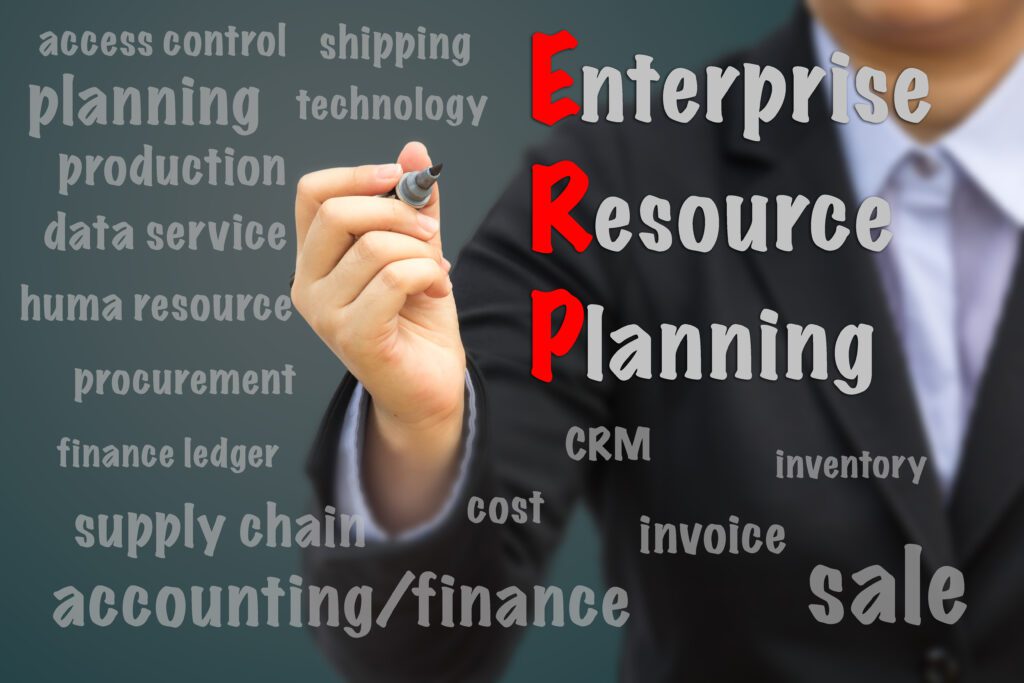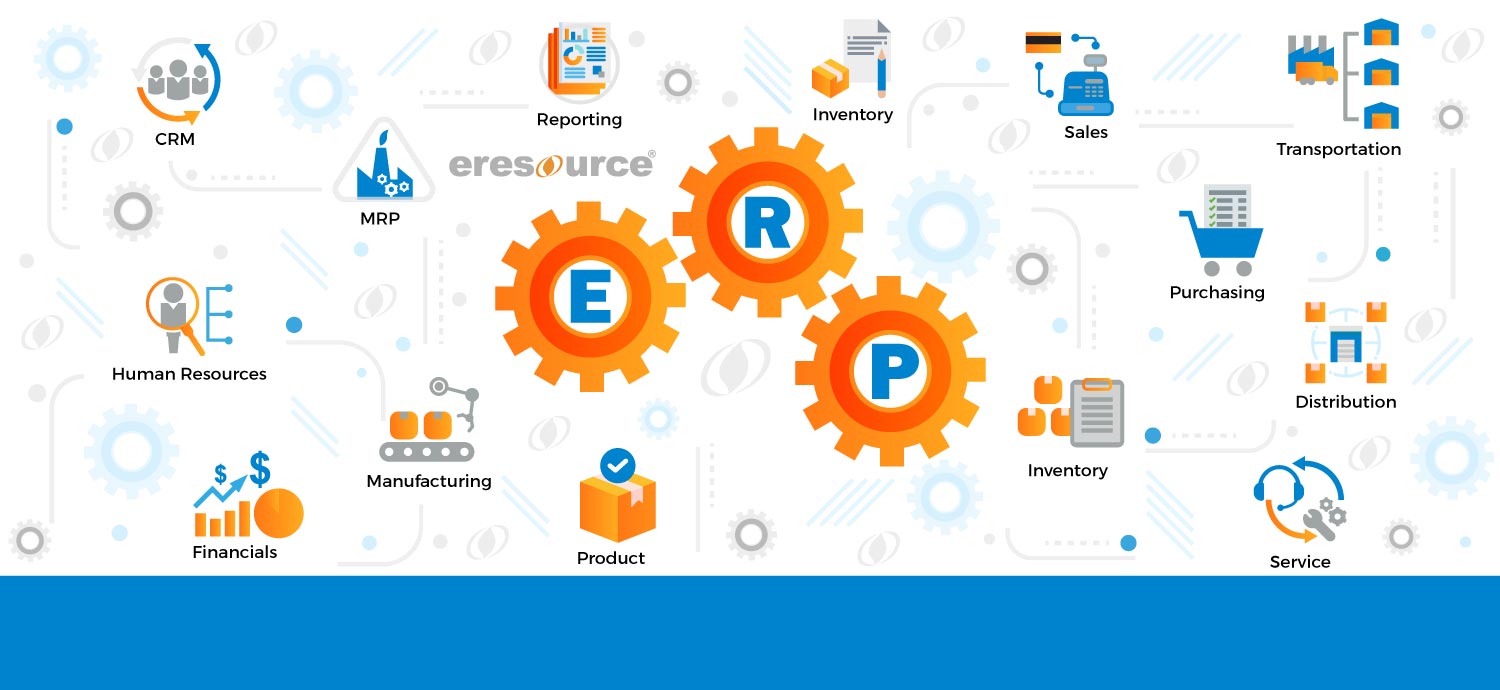ERP software solutions used to plan, manage, and deliver particular features that assist manufacturers and manufacturing business activities are referred to as manufacturing ERP. Modern manufacturing ERP software systems are designed to adaptably support and integrate into any business process, giving manufacturers a complete business management platform.

Why is ERP software used in manufacturing companies?
ERP systems are a mode of manufacturing management software that boosts a manufacturing company’s organizational effectiveness by managing and optimizing the use of its resources. The secret to successfully increasing manufacturing business growth and profitability is to improve and/or decrease the number of resources required without compromising quality and performance. ERP software enables manufacturing businesses to control critical elements of everything from shop floor operations to supply and inventory planning.
Benefits of ERP for Manufacturing Companies
Having a modern, integrated manufacturing ERP software system has numerous positive macro and micro operational and financial effects. The following are some of the most significant advantages of ERP for manufacturers:
- reducing duplication and automating procedures to boost efficiency
- manufacturing operations optimization for increased productivity
- enhancing inventory management, warehouse operations, and supply chains
- reducing risk and strengthening compliance’s sense of security
- providing clients with better service
- bringing departments together and comparing KPIs throughout the company
- getting rid of the requirement for several incompatible systems
- obtaining easy access to real-time reporting for your business
- Bringing operational and financial data under one roof to improve visibility and communication
- learning how to adjust and adapt to changes and disruptions in the corporate environment
Generally speaking, a manufacturing ERP system streamlines processes and offers assistance that helps manufacturers expand their operations, boost revenue, and improve quality.
Also Read – ERP Software for Construction
What are Differences between Standard ERP and Manufacturing ERP?
A general ERP system having common capabilities for all enterprises is referred to as a standard ERP system. In many instances, a generic system is created as a one-size-fits-all and may not have full manufacturing integration or essential functionalities for a business that focuses on Manufacturing. Lack of integration may result in limited data views and the need for software adaptation to satisfy particular company and industry needs.
An ERP system for Manufacturing is created especially for the manufacturing sector and offers cutting-edge capabilities for needs unique to the sector. Manufacturing ERP software connects essential business activities with manufacturing processes, giving businesses in the manufacturing industry complete visibility and control.
When is a Manufacturing Industry Ready for ERP?
ERP for Manufacturing is designed to manage manufacturing activities. For manufacturing management, manufacturing organizations should take into account an ERP software solution when their current business systems and procedures:
- no longer work or work inefficiently
- no longer encourage the company’s expansion
- lack of existing security standards to reduce risk
Finding areas for improvement and identifying broken processes are crucial for development.
Which ERP is best for Manufacturing?
The eresource Xcel ERP for manufacturing solution help adaptive manufacturing businesses get a competitive edge by allowing them to adjust to change and disruption. Depending on the size, purpose, and requirements of a manufacturing firm, many different types of ERP systems and deployment options are available today.
- Once installed, an on-premise ERP system gives users ownership, control, and support. This includes the price and risk of managing hardware and system infrastructure for manufacturers.
- With ongoing support, upgrades, training, and customizable customization from an ERP provider, a cloud-based ERP system can offer manufacturers a complete yet flexible solution.
- A manufacturing company may benefit from a “Hybrid ERP” setup that combines hosting and deployment services from the cloud and on-premise. These models can allow ERP users to switch between delivery paradigms or include advantages not seen in current implementations.
Also Read – ERP for Steel Industry
Conclusion
Manufacturers need to be flexible. Since business settings are continually evolving, techniques and strategies that were effective yesterday might not be effective today. Because of this, manufacturers must continue to be in a position to anticipate changes and interruptions rather than only respond to them. eresource Xcel manufacturing ERP solution give companies the tools to embrace change, keep up with cutting-edge technology, and outperform the competition.
Manufacturers can benefit from eresource’s solutions by being intelligent, flexible, and creative in a market that is constantly changing. For you to make wise judgments, you must incorporate real-time reporting and visibility into your company’s operations, the market, and your clients. Manufacturing companies can quickly and strategically adapt to internal and external business changes using eresource enterprise planning software. ERP solutions from eresource give firms a competitive edge by assisting them in successfully adjusting to change and disruptors.
Also Read – Project Based ERP Software
Categories
Register for Free Demo!
Recent Post
-

eresource ERP 360 - an
11th Apr 2019 -

A competitive ERP system for
17th Apr 2019 -

Auto components manufacturing industry has
17th Apr 2019 -

Make the best use of
17th Apr 2019






